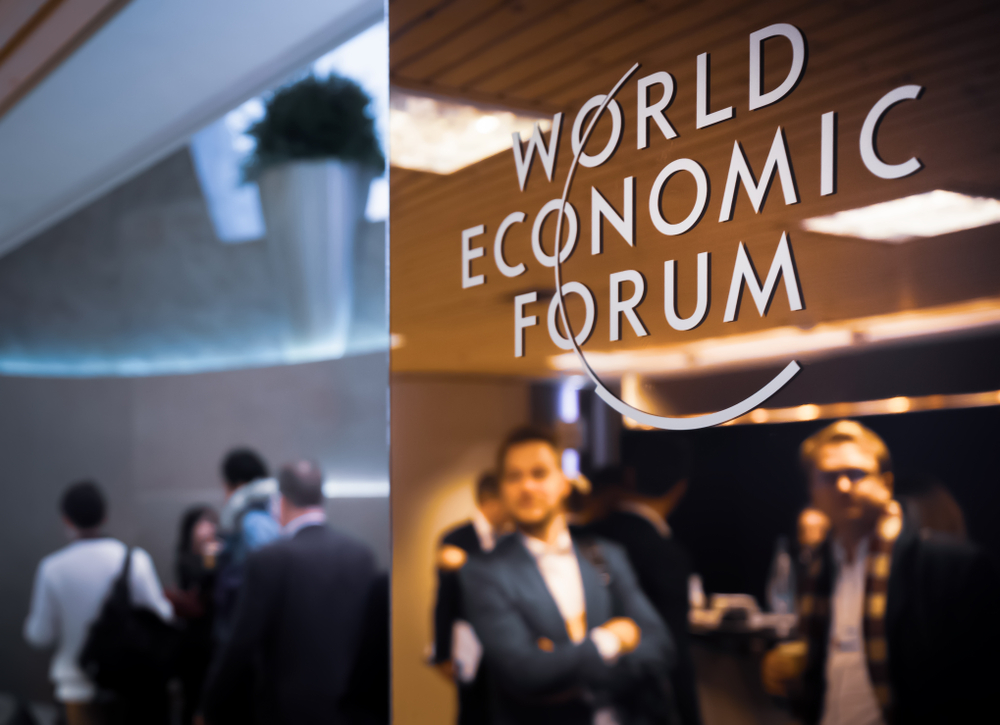
Is Davos Still Relevant?
For decades, the World Economic Forum (WEF) in Davos has dominated the headlines each year in January, where PRs flock to build a momentum of media opportunities. However, the paradigm has shifted recently, as numerous headlines in recent years have declared the dwindling relevance of Davos. In this blog, we will explore the alleged decline of Davos and its implications for PR professionals.
What is Davos?
Davos is a well-known town perched in the icy Swiss Alps, but what gives it its fame? It’s not the fact that it’s one of the highest towns in Europe, being 1,560 meters above sea level, nor is it because it’s a place where winter sports were pioneered.
Instead, the town is most famously known as the meeting site for the WEF annual meeting, where delegates from a variety of sectors, such as global business, government, civil society, media and academia, gather together on an invite-only basis to address and tackle the most urgent global challenges by establishing priorities for the following year.
The annual meeting is a long-standing tradition for the WEF, which started in 1971 when Professor Klaus Schwab founded the Forum as a not-for-profit foundation under the oversight of the Swiss Federal Government, with the aim of advancing stakeholder capitalism — a system that entails how organisations should serve its stakeholders (anyone affected by the organisation’s activities, such as employees, suppliers, the community) as opposed to just its shareholders (those who own at least one share of a company, such as C-level executives).
Since then, it has served stakeholders and the public interest by engaging with a variety of prominent global events throughout the decades, spanning from the prevention of a Greece-Turkey conflict, the facilitating of a handshake that defined the end of apartheid, initiating an alliance that successfully vaccinated over one billion children, and many more.
This year’s Davos 2024, taking place from January 15 to January 19, is focused on the theme ‘Rebuilding Trust’, covering the fundamental principles of ‘transparency, consistency and accountability.’ The meeting is also organised around four areas, namely ‘Achieving Security and Cooperation in a Fractured World’, ‘Creating Growth and Jobs for a New Era’, ‘A Long-Term Strategy for Climate, Nature and Energy’, and ‘Artificial Intelligence as a Driving Force for the Economy and Society,’ which many speculate will take centerstage at the discussions.
Is Davos still relevant 54 years later?
Despite its achievements, participation in pertinent global issues, and a record-breaking number of attendees in 2023, several news outlets came out with headlines that claimed the decline of Davos in recent years, such as CNN’s ‘Davos draws record crowds, but its relevance is fading’, Al Jazeera’s ‘Davos is dead’ article, and the Financial Times article about how ‘Davos is dead, and the coronavirus killed it.’
Aside from claiming the alleged death of Davos, what do all these articles have in common? It critiques the contradictions of the WEF, which the Guardian has outrightly addressed in an article titled ‘The worst thing about Davos? The Masters of the Universe think they are do-gooders.’
An annual inequality report released by Oxfam last January found that the global 1% has garnered almost two-thirds of all the wealth generated in the last two years. It seems that much of the public and writers of these articles are simply uninterested in the rich and powerful who hoard wealth and jump on their carbon emission-spewing private jets yet supposedly care to uncover meaningful solutions to the most pressing global issues.
The United Nations (UN) Conference of the Parties (COP), another major conference that is arguably bigger than Davos with over 80,000 attendees during last December’s COP28, has also been coined by some as the ‘new Davos.’ An Alliance Magazine source was quoted saying, “COP has become the new Davos. People are thinking, “What’s the point of going to Davos when you can do business deals at COP each year?” This sentiment was shared by another delegate who was reported saying something similar to the Times.
However, others have said COP is becoming the new Davos in producing the same disappointments and receiving the same criticisms. For example, a Sky News article stated that in the first 27 COPs, the final agreement each year hasn’t mentioned fossil fuels, despite fossil fuels being the main contributor to climate change.
That’s not to say Davos or COP doesn’t have its productive, successful moments. At the end of the day, these conferences were created as a platform where people who have the power to create change can share ideas and solutions and build partnerships towards a better world.
The takeaways for PRs
Despite the prevailing narrative of diminishing interest, the unprecedented attendance records at Davos 2023 and the massive turnout of over 80,000 participants at COP28 underscore the enduring significance of these conferences. If anything, public disinterest often stems from perceived inaction and false promises. The biggest takeaway? People want action.
As PR professionals who attend these events, our responsibility lies in steering clear of greenwashing tactics and upholding the PR values of transparency and authenticity in every aspect of our communications, as today’s audience is discerning. If we are to be spokespersons for our clients, we need to ensure that what we convey to the media is something that our clients are able to follow through with. This aligns with the growing need for transparent and action-oriented narratives, especially in an era where genuine commitment to addressing global challenges is crucial.
The public aside, what do journalists at conferences such as Davos want to hear from communicators? Insights from Fleishman Hillard emphasise the demand for concise communication. Journalists seek communicators and spokespeople who ‘get straight to the point’ by providing newsworthy information in the form of truly impactful commentary that strengthens their stories, especially as many stories risk drowning under the noise of bigger announcements.
All in all, the success of engagements at Davos and COP hinges on delivering tangible actions, avoiding superficial gestures, and embracing a communication style that aligns with the urgency and depth of the challenges being addressed.
Read more: Confessions of a Davos Virgin
Curzon PR is a London-based PR firm working with clients globally. If you have any questions, please feel free to contact our Business Development Team info@curzonpr.com







Follow us